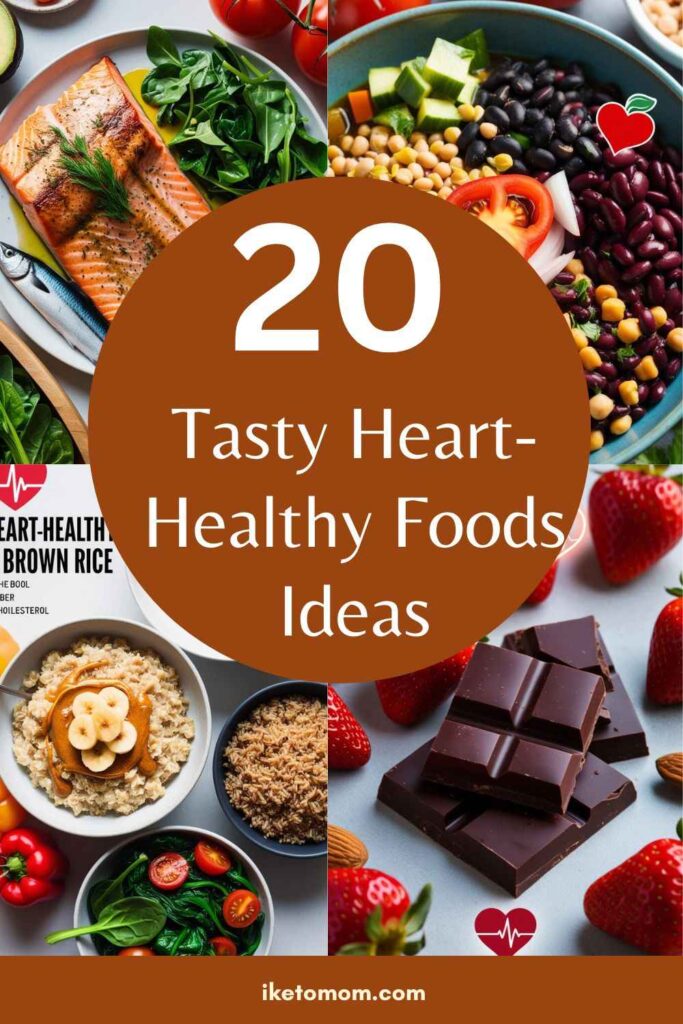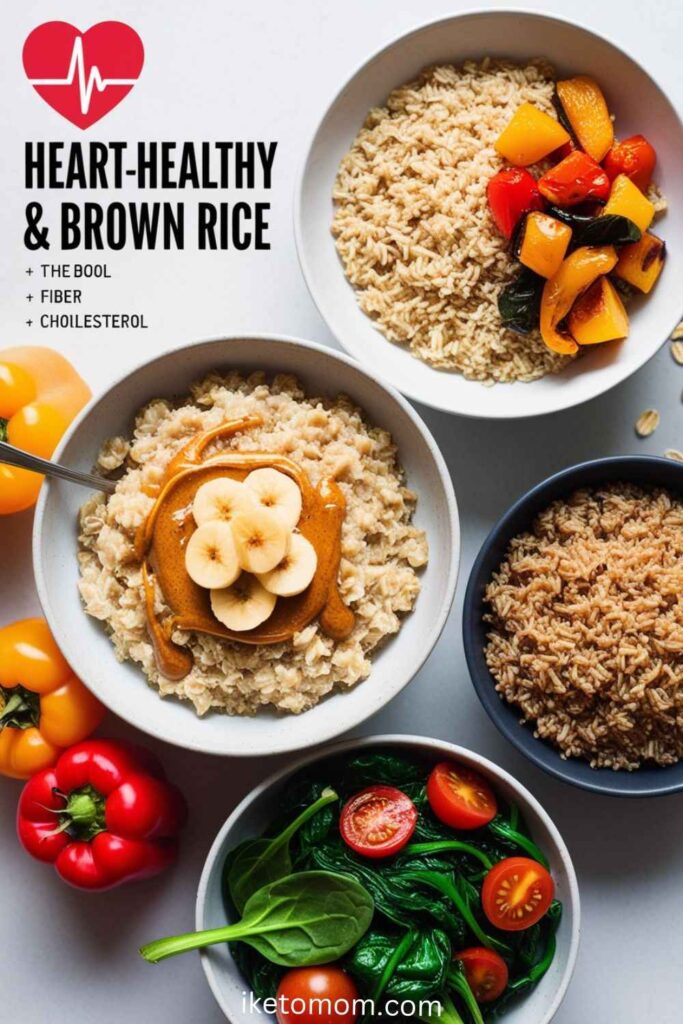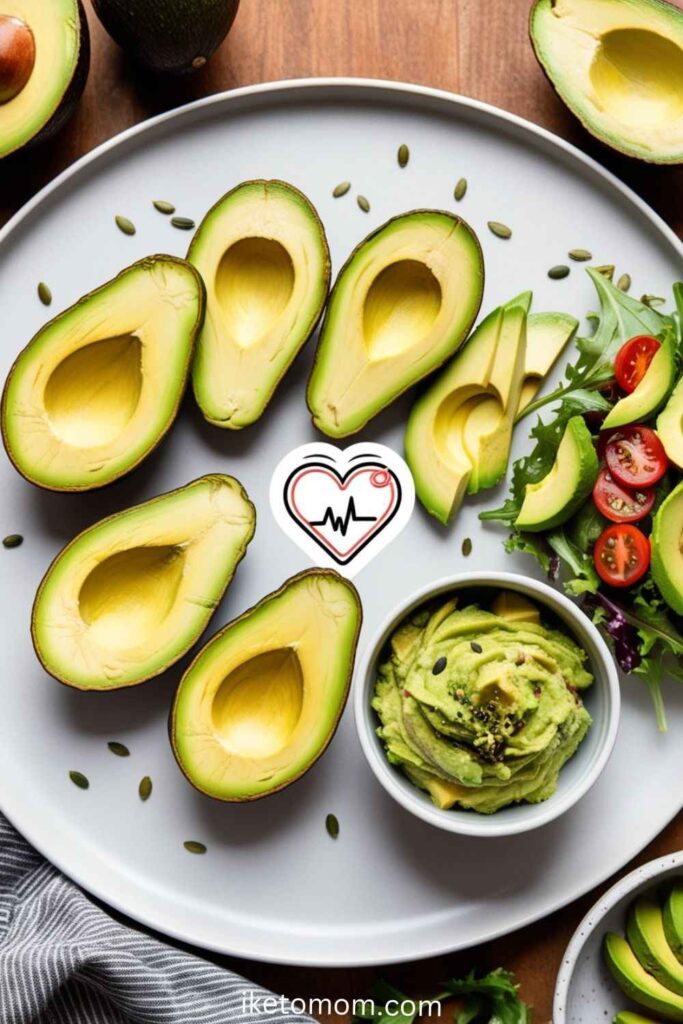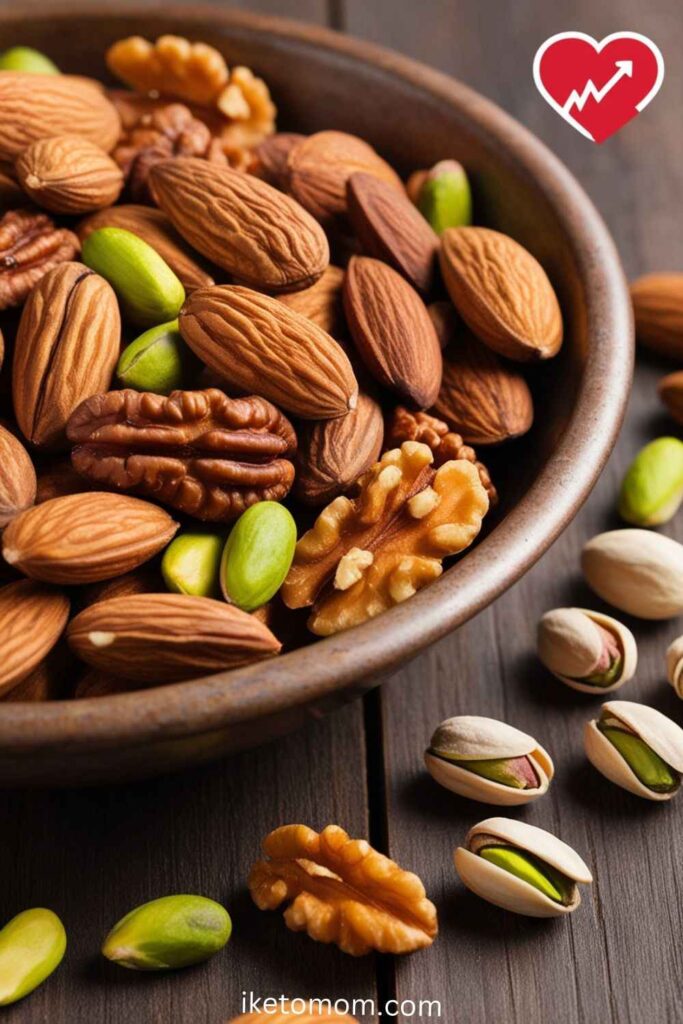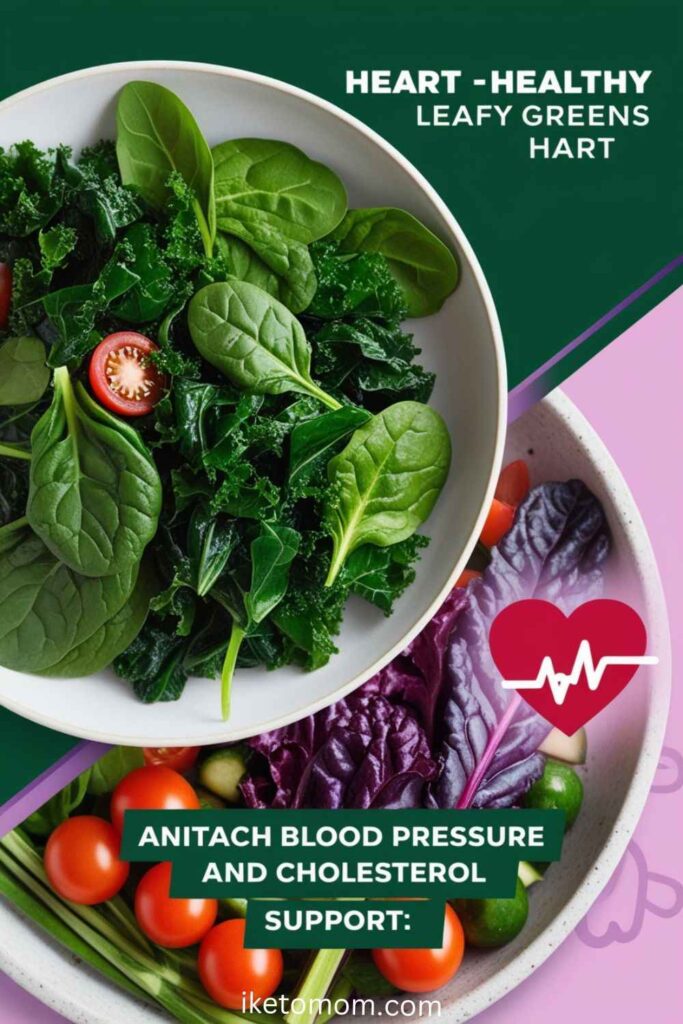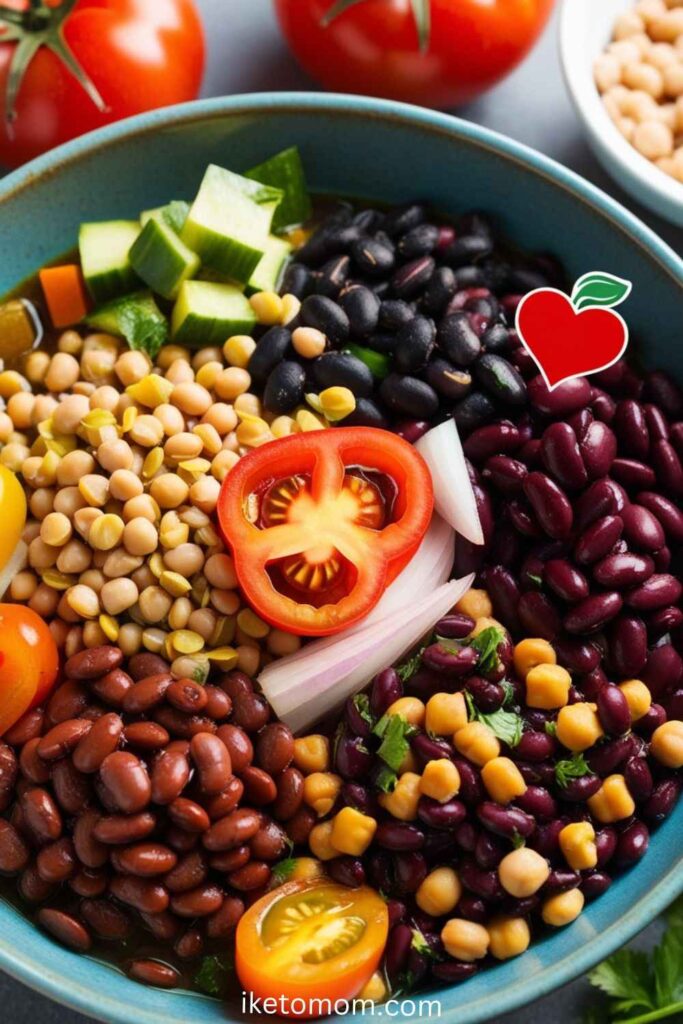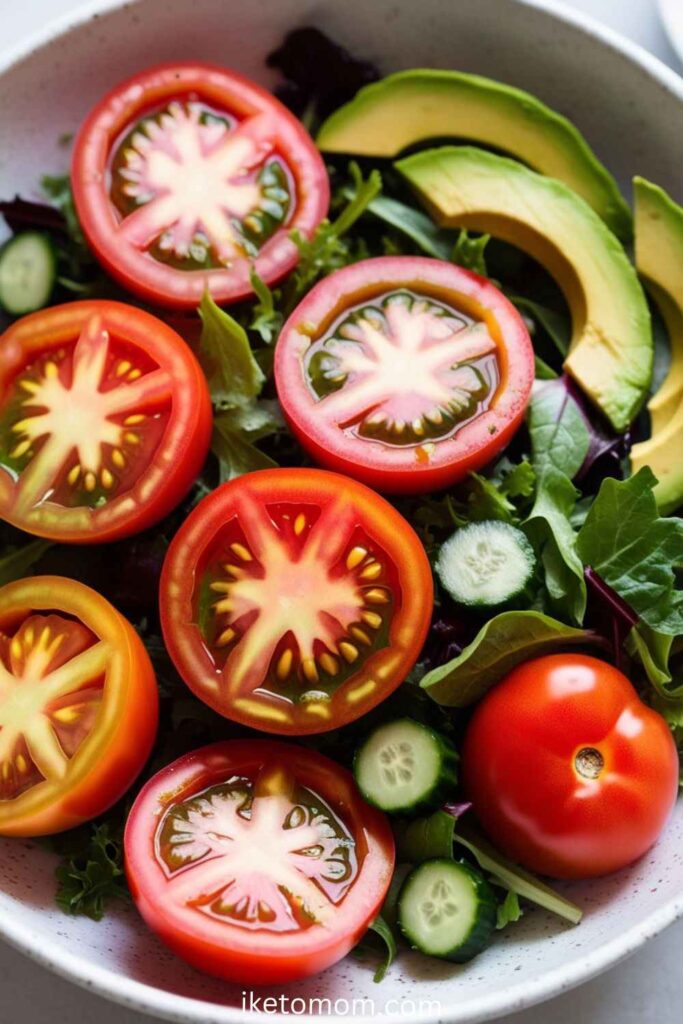Heart-Healthy Foods Ideas is essential to overall well-being, as the heart plays a crucial role in delivering oxygen and nutrients to every part of the body. Maintaining a healthy heart is vital for reducing the risk of heart disease, which remains one of the leading causes of death worldwide. One of the most effective ways to protect your heart is by making wise food choices. Heart-healthy foods can help reduce cholesterol, control blood pressure, and prevent the buildup of plaque in the arteries, all of which are key factors in preventing cardiovascular diseases.
A well-balanced diet that includes a variety of nutrient-rich foods can significantly improve heart health. Incorporating foods high in healthy fats, fiber, vitamins, and antioxidants can help lower the risk of heart disease and improve overall cardiovascular function. By choosing heart-healthy foods, you can not only enhance your quality of life but also live longer with a reduced risk of serious heart-related conditions.
In this guide, we will explore 20 tasty heart-healthy food ideas. Each food item will be accompanied by its nutritional information, providing you with the knowledge to make informed decisions about the foods you eat and their impact on your heart health.
Heart-Healthy Foods Ideas
1. Oats and Whole Grains
Heart Healthy Foods Ideas: Oats, quinoa, brown rice
Whole grains like oats, quinoa, and brown rice are excellent choices for heart health due to their high fiber content. Fiber plays a key role in reducing cholesterol levels, which is crucial for preventing plaque buildup in the arteries. Oats, in particular, contain soluble fiber, which helps lower LDL (bad) cholesterol levels by binding to cholesterol and removing it from the body. Similarly, quinoa and brown rice are rich in both fiber and essential nutrients like magnesium, which supports heart function and helps regulate blood pressure.
In addition to their heart-healthy benefits, these whole grains are a great source of complex carbohydrates, providing sustained energy without spiking blood sugar levels. Regularly including oats and other whole grains in your diet can improve overall cardiovascular health, reduce the risk of heart disease, and support long-term well-being.
Nutrition Information:
- Oats: High in soluble fiber (beta-glucan), which lowers cholesterol levels.
- Quinoa: A complete protein, rich in fiber, magnesium, and antioxidants.
- Brown Rice: High in fiber, magnesium, and B vitamins, which support heart health.
These whole grains are versatile and easy to incorporate into meals like breakfast bowls, salads, or as a base for stir-fries, making them a simple yet powerful addition to a heart-healthy diet.
2. Fatty Fish (Salmon, Mackerel, Sardines)
Heart Healthy Foods Ideas: Salmon, Mackerel, Sardines
Fatty fish like salmon, mackerel, and sardines are some of the best foods for promoting heart health. These fish are rich in omega-3 fatty acids, which are known for their ability to lower inflammation and improve blood circulation. Omega-3s help reduce the risk of heart disease by lowering triglycerides, reducing blood pressure, and preventing blood clots. Additionally, these fatty acids are beneficial for maintaining healthy cholesterol levels, particularly by increasing HDL (good) cholesterol.
These fish are not only heart-healthy but also offer a rich source of high-quality protein, vitamins, and minerals such as vitamin D and selenium. Consuming fatty fish regularly as part of a balanced diet can significantly reduce the risk of cardiovascular disease, promote better circulation, and support overall heart function.
Nutrition Information:
- Salmon: High in omega-3 fatty acids (EPA and DHA), protein, and vitamin D.
- Mackerel: Rich in omega-3s and vitamin B12, which supports heart health.
- Sardines: Packed with omega-3s, calcium, and vitamin D, offering strong anti-inflammatory benefits.
Incorporating fatty fish into your meals can be done easily by grilling, baking, or adding it to salads and sandwiches, offering a flavorful way to boost heart health.
3. Avocados
Heart Healthy Foods Ideas: Avocados
Avocados are an excellent heart-healthy food due to their high content of monounsaturated fats, which help reduce bad cholesterol (LDL) levels while maintaining healthy levels of good cholesterol (HDL). These healthy fats contribute to improved heart function by supporting healthy blood circulation and reducing the risk of cardiovascular diseases. Additionally, avocados are rich in potassium, an essential mineral that helps regulate blood pressure, further promoting a healthy heart.
Avocados are also a great source of fiber, vitamins, and antioxidants, all of which contribute to overall cardiovascular health. Whether added to salads, mashed on toast, blended into smoothies, or used in guacamole, avocados are a versatile and delicious way to boost heart health while adding creamy texture and flavor to meals.
Nutrition Information:
- Monounsaturated fats: Help lower bad cholesterol and improve heart health.
- Potassium: Supports healthy blood pressure levels.
- Fiber: Contributes to overall heart health by improving cholesterol levels.
Incorporating avocados into your diet is an easy and flavorful way to promote a heart-healthy lifestyle.
4. Berries (Blueberries, Strawberries, Raspberries)
Heart Healthy Foods Ideas: Blueberries, Strawberries, Raspberries
Berries such as blueberries, strawberries, and raspberries are packed with heart-healthy nutrients, making them an excellent choice for anyone looking to improve cardiovascular health. These fruits are rich in antioxidants, particularly anthocyanins, which help combat oxidative stress, a key factor in the development of heart disease. The vitamins and fiber in berries also support overall heart health by improving blood vessel function, reducing inflammation, and helping to manage cholesterol levels.
In addition to their antioxidant properties, berries are a great source of vitamin C, which boosts the immune system and helps reduce inflammation in the body. Their high fiber content helps lower cholesterol levels, regulate blood sugar, and keep the heart functioning properly. Enjoying a variety of berries regularly as part of a balanced diet can help protect the heart from disease and improve overall cardiovascular health.
Nutrition Information:
- Antioxidants: Rich in anthocyanins, which reduce oxidative stress and protect the heart.
- Vitamins: High in vitamin C, promoting immune and heart health.
- Fiber: Helps lower cholesterol, regulates blood sugar, and supports heart function.
Incorporating berries into your diet is simple—add them to smoothies, sprinkle them on oatmeal, or enjoy them as a snack. Their vibrant color and sweet taste make them a delicious addition to any heart-healthy meal.
5. Nuts (Almonds, Walnuts, Pistachios)
Heart Healthy Foods Ideas: Almonds, Walnuts, Pistachios
Nuts like almonds, walnuts, and pistachios are nutrient-dense foods that provide a powerful boost to heart health. These nuts are rich in healthy fats, particularly monounsaturated and polyunsaturated fats, which help reduce bad cholesterol (LDL) and increase good cholesterol (HDL). They are also packed with fiber and protein, both of which contribute to improved cardiovascular function by supporting healthy blood sugar and cholesterol levels.
In addition to their heart-protective properties, walnuts are particularly known for their high omega-3 fatty acid content, which has been shown to reduce inflammation and improve blood vessel function. Almonds and pistachios, on the other hand, provide antioxidants, vitamins, and minerals, including vitamin E and magnesium, which further support heart health. Regular consumption of nuts as part of a balanced diet can reduce the risk of heart disease and promote better overall cardiovascular health.
Nutrition Information:
- Healthy fats: Help reduce bad cholesterol and support heart function.
- Fiber: Helps regulate blood sugar and lower cholesterol.
- Protein: Supports muscle health and helps maintain healthy weight.
- Antioxidants: Found in nuts like walnuts, which reduce inflammation and support heart health.
Including nuts in your diet is easy—enjoy them as snacks, sprinkle them on salads, or blend them into smoothies for a tasty, heart-healthy treat.
6. Leafy Greens (Spinach, Kale, Swiss Chard)
Heart Healthy Foods Ideas: Spinach, Kale, Swiss Chard
Leafy greens such as spinach, kale, and Swiss chard are some of the most nutrient-dense foods you can eat for heart health. These vegetables are packed with essential vitamins, minerals, and antioxidants that support cardiovascular function. They are particularly high in potassium, which helps regulate blood pressure, and magnesium, which supports proper heart rhythm and function.
In addition to their ability to lower blood pressure and cholesterol, leafy greens are rich in fiber, which contributes to better cholesterol levels and heart health. They also provide antioxidants such as vitamin C, beta-carotene, and flavonoids, which help reduce oxidative stress and inflammation, both of which contribute to heart disease. Consuming a variety of leafy greens regularly can significantly improve heart health and help prevent cardiovascular problems.
Nutrition Information:
- Vitamins and minerals: High in vitamin K, potassium, and magnesium, supporting heart health.
- Antioxidants: Help lower oxidative stress and reduce inflammation.
- Fiber: Helps lower cholesterol and regulate blood pressure.
Incorporating leafy greens into your diet is easy—add them to salads, smoothies, soups, or sauté them as a side dish to enjoy their heart-healthy benefits.
7. Beans and Legumes
Heart Healthy Foods Ideas: Beans, Lentils, Chickpeas, Black Beans, Kidney Beans
Beans and legumes are incredibly beneficial for heart health due to their high content of protein, fiber, and essential nutrients. These plant-based foods are an excellent source of heart-healthy fiber, which helps lower LDL (bad) cholesterol levels, reducing the risk of plaque buildup in the arteries. The fiber in beans also supports blood sugar control and aids in digestion.
In addition to fiber, beans and legumes are rich in plant-based protein, making them a great alternative to meat for heart-conscious individuals. They are also packed with essential vitamins and minerals, including folate, magnesium, and potassium, which support blood pressure regulation and overall cardiovascular function. Consuming beans and legumes regularly can contribute to a healthier heart and improve overall well-being.
Nutrition Information:
- High in protein: Provides plant-based protein, supporting heart health and muscle function.
- Fiber: Helps lower cholesterol, regulate blood sugar, and support digestion.
- Vitamins and minerals: Rich in folate, magnesium, and potassium, which help regulate blood pressure and support heart function.
Adding beans and legumes to your meals can be easy—include them in soups, salads, or use them as a base for veggie burgers or dips. They are versatile, filling, and an excellent heart-healthy food choice.
8. Tomatoes
Heart Healthy Foods Ideas: Tomatoes
Tomatoes are an excellent choice for promoting heart health due to their rich content of lycopene, a powerful antioxidant known for its heart-protective properties. Lycopene helps reduce oxidative stress and inflammation, which are both key factors in the development of heart disease. In addition to lycopene, tomatoes are packed with vitamins, particularly vitamin C, and other antioxidants that support heart health by improving blood vessel function and reducing blood pressure.
Tomatoes are also a good source of potassium, which helps regulate blood pressure, further contributing to heart health. They are low in calories and high in water content, making them a hydrating and nutritious addition to meals. Whether consumed raw in salads, cooked in sauces, or blended into soups, tomatoes provide a variety of ways to enjoy their cardiovascular benefits.
Nutrition Information:
- Lycopene: A potent antioxidant that reduces the risk of heart disease.
- Vitamin C: Supports blood vessel function and reduces inflammation.
- Potassium: Helps regulate blood pressure and support overall heart health.
Incorporating tomatoes into your diet can be easy—use them in salads, sandwiches, smoothies, or as a base for heart-healthy sauces and soups.
9. Dark Chocolate (70% Cocoa or More)
Heart Healthy Foods Ideas: Dark Chocolate (70% Cocoa or More)
Dark chocolate, especially those with 70% cocoa or more, is not only a delicious treat but also offers several heart health benefits. It is rich in antioxidants, particularly flavonoids, which have been shown to improve blood flow, lower blood pressure, and reduce the risk of heart disease. The higher the cocoa content, the more beneficial antioxidants the chocolate contains.
Consuming moderate amounts of dark chocolate can help lower LDL (bad) cholesterol levels and increase HDL (good) cholesterol, promoting a healthier balance in the body. Additionally, the flavonoids in dark chocolate help relax blood vessels, improving circulation and reducing the strain on the heart. Opting for dark chocolate with a high cocoa content ensures that you’re getting the maximum heart-healthy benefits while indulging in a satisfying treat.
Nutrition Information:
- Antioxidants: Rich in flavonoids, which help improve blood flow and protect the heart.
- Cholesterol: Helps lower LDL (bad) cholesterol and increase HDL (good) cholesterol.
- Blood Flow: Flavonoids help relax blood vessels, supporting better circulation.
Enjoy dark chocolate in moderation, whether eaten as a snack, paired with nuts, or melted into a smoothie or dessert. It’s a guilt-free way to satisfy your sweet tooth while supporting heart health.
10. Olive Oil
Heart Healthy Foods Ideas: Olive Oil
Olive oil, especially extra virgin olive oil, is widely known for its heart-healthy benefits due to its high content of monounsaturated fats. These healthy fats help reduce bad cholesterol (LDL) levels while maintaining good cholesterol (HDL), promoting overall cardiovascular health. Olive oil is also rich in antioxidants, including polyphenols, which help reduce inflammation and protect blood vessels from damage.
In addition to reducing inflammation, olive oil supports heart health by improving blood circulation and helping regulate blood pressure. Regular consumption of olive oil as part of a balanced diet can significantly reduce the risk of heart disease. It is a versatile ingredient that can be used for cooking, drizzling over salads, or as a base for sauces and dressings.
Nutrition Information:
- Monounsaturated fats: Help lower bad cholesterol and support heart health.
- Antioxidants: Polyphenols that reduce inflammation and protect blood vessels.
- Heart health: Improves circulation, supports healthy blood pressure, and lowers the risk of heart disease.
Incorporating olive oil into your daily meals is easy and delicious—use it in cooking, as a dressing, or simply drizzle over your favorite dishes for added flavor and heart-healthy benefits.
FAQ
1. What are heart-healthy foods?
Heart-healthy foods are those that help reduce the risk of heart disease by supporting healthy cholesterol levels, blood pressure, and blood circulation. These foods are typically rich in antioxidants, healthy fats, fiber, and essential vitamins and minerals. Examples include fatty fish, leafy greens, whole grains, nuts, and olive oil.
2. How can I incorporate heart-healthy foods into my daily diet?
Incorporating heart-healthy foods into your diet is easy. You can start by swapping unhealthy snacks for nuts or berries, using olive oil for cooking, adding leafy greens to salads or smoothies, and choosing whole grains like quinoa and oats. Aim to include a variety of heart-healthy foods in each meal.
3. Are all fats bad for heart health?
Not all fats are bad. Healthy fats, such as those found in olive oil, avocados, and fatty fish, are essential for heart health. These monounsaturated and polyunsaturated fats help lower bad cholesterol (LDL) while supporting good cholesterol (HDL). It’s important to limit saturated and trans fats, which can increase the risk of heart disease.
4. Can eating heart-healthy foods prevent heart disease?
While eating heart-healthy foods is not a guarantee of preventing heart disease, it significantly lowers the risk. A balanced diet rich in these foods, along with regular physical activity, can help maintain a healthy weight, reduce cholesterol levels, and support overall cardiovascular health, which can reduce the risk of heart disease.

I’m Priscilla Swahn, a registered dietitian with a master’s degree in nutritional sciences. With over a decade of experience in holistic nutrition, I specialize in creating delicious keto recipes to help you enjoy a healthy lifestyle. On iKetoMom, you’ll find a variety of recipes for every meal—hearty breakfasts, satisfying lunches, mouthwatering dinners, indulgent desserts, and refreshing drinks. My recipes make keto living easy and enjoyable for the whole family. Featured in EatingWell and MindBodyGreen, I also collaborate with health centers and corporate companies to share my expertise. Join me and discover the joy of keto cooking!

